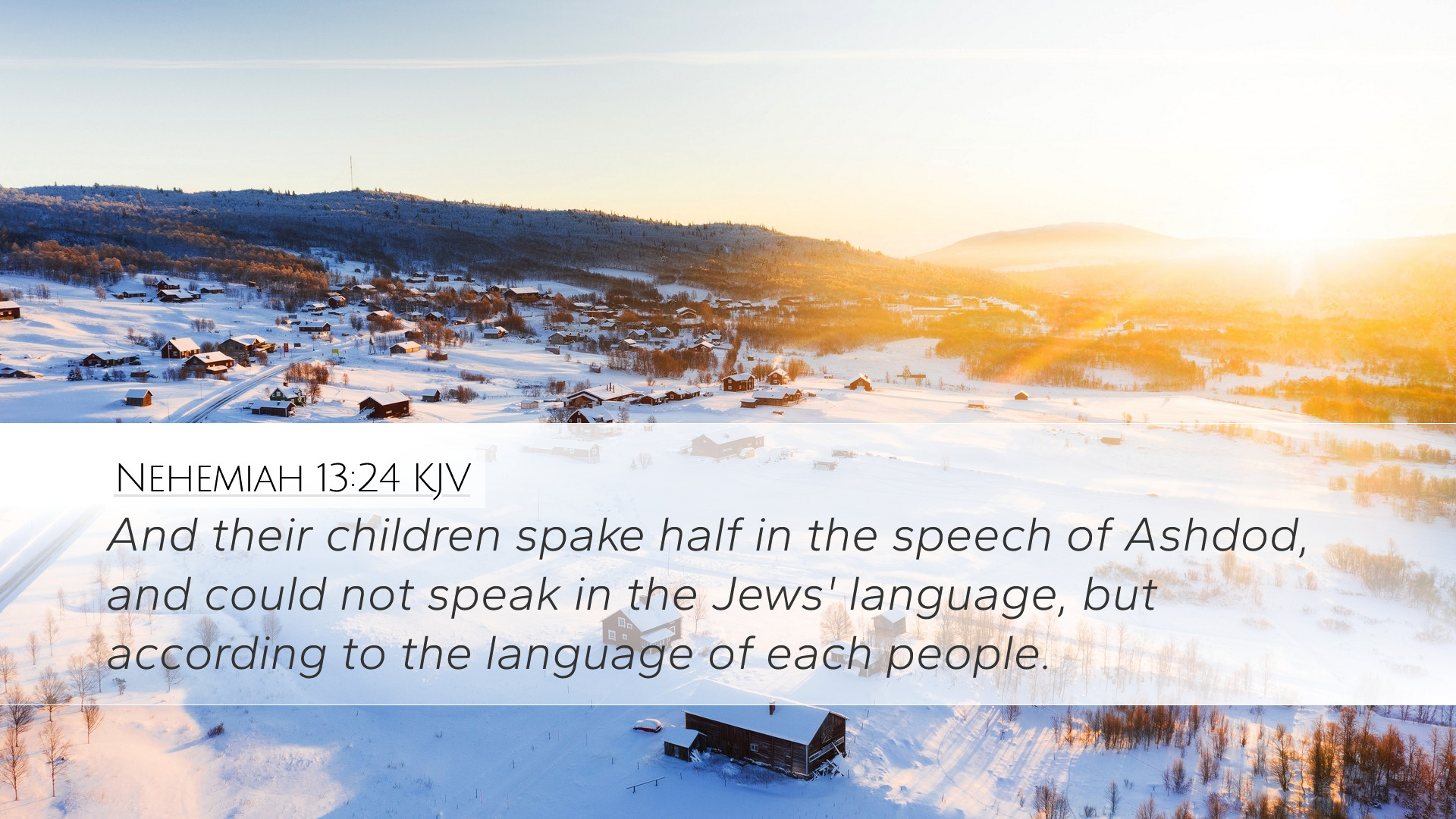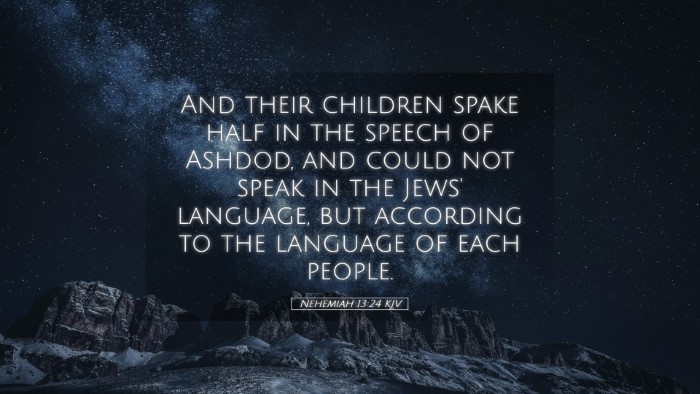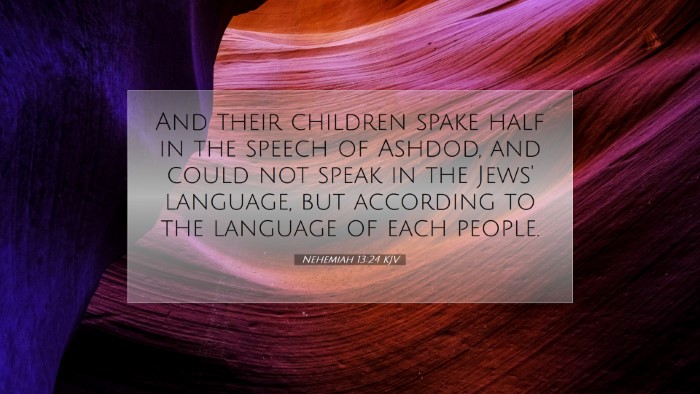Commentary on Nehemiah 13:24
Nehemiah 13:24 states, "And their children spoke half in the speech of Ashdod, and could not speak in the Jews' language, but according to the language of each people." This verse highlights the cultural and linguistic challenges faced by the Jewish community after their return from exile and the significant implications for their identity and future as the people of God.
Contextual Background
To appreciate the depth of Nehemiah 13:24, we must first consider the historical context of the Jewish return from Babylonian exile. Following decades in captivity, a remnant returned to Jerusalem to rebuild the city and restore their culture and religious practices. Nehemiah, as a key figure, exemplified leadership in these endeavors, emphasizing both physical reconstruction and spiritual renewal.
The Language Barrier
This verse draws attention to a profound problem within the community. The fact that the children spoke half in the speech of Ashdod indicates a mixture of cultures. Ashdod was a Philistine city, and the introduction of its language reflects the assimilation of surrounding pagan cultures into the Jewish community.
Implications of Language
Language is integral to identity. The inability of the children to communicate in the Jewish language signifies a weakening of cultural and religious roots. This could lead to a loss of the historical narrative that shaped the Israelites' understanding of God’s covenant with them. According to Matthew Henry, this linguistic shift represents a spiritual decay, as language embodies the values and beliefs of a community.
Examination of Commentaries
Matthew Henry's Commentary
Matthew Henry notes that the language struggle is indicative of a broader issue: mixed marriages and the subsequent loss of a distinct Jewish identity. He emphasizes that this cultural dilution could lead to an erosion of faith among future generations. Henry argues, “A people whose children cannot speak the mother tongue are in a declining condition; they lose their identity and their heritage.”
Albert Barnes’ Commentary
Albert Barnes emphasizes the critical nature of language in maintaining the community’s identity. He states, “The children should have been taught the language of their fathers, as it carries the essence of their traditions and faith.” Barnes observes that this failure indicates the parents' neglect in imparting their values and beliefs, which is essential for the preservation of their lineage and culture.
Adam Clarke's Commentary
Adam Clarke offers insight into the potential pitfalls of losing one’s linguistic heritage. He suggests that the children’s inability to speak Hebrew is more than a mere linguistic deficiency; it represents a spiritual decline. Clarke argues, “Language carries thoughts; if the people do not speak the language of their forefathers, they will eventually forget the very thoughts of God’s law and His covenant.”
Theology and Application
This passage not only provides insight into the historical and social dynamics of post-exilic Israel but also serves as a theological call to maintain fidelity to one’s faith and cultural roots.
Lessons on Cultural Identity
- Preserving Heritage: Just as the Israelites faced challenges in maintaining their language, modern-day believers must intentionally preserve their cultural and spiritual heritages against the encroaching influences of secularism and pluralism.
- Intergenerational Teaching: The responsibility falls upon the current generation to pass down beliefs and practices. Teaching our children the language of our faith, both literally and metaphorically, is vital in fostering strong connections to God and His Word.
- Awareness of Influence: The surrounding cultures often attempted to pull the Israelites away from the practices ordained by God. Believers today are called to be discerning about the influences that surround us and their impact on our spiritual journey.
Spiritual Reflection
The inability of the children to speak Hebrew speaks volumes about spiritual vitality. How often do we witness the same in our communities? Through this verse, we are reminded to foster an environment where our children can not only learn but also embody the values of the faith.
Conclusion
Nehemiah 13:24 serves as a compelling reminder of the importance of cultural, spiritual, and linguistic identity within the community of believers. By examining and reflecting on this verse through the lenses of prominent scholars like Matthew Henry, Albert Barnes, and Adam Clarke, we are equipped with insights that challenge us to take proactive steps in ensuring the narrative of our faith continues to echo through the generations. The call to action is clear: let us nurture our language, heritage, and identity in Christ.


